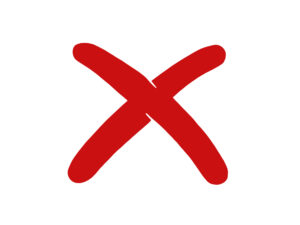How ethical and sustainable is Nescafé?
Nescafé is a brand of coffee owned by Nestlé. The brand scored very poorly in The Good Shopping Guide’s Ethical Coffee Ratings Table and requires significant improvement to be considered an ethical brand in the future.
For more information regarding the ethical issues of this company please visit the Ethical Coffee report by The Good Shopping Guide and see how additional brands score in our Ethical Coffee Ratings Table.
What is Nescafé and what does it do?
Nescafé started in 1929 when Brazil made a specific request to Nestlé Chairman of the Board of Directors Louis Dapples. It was suggested that Nestlé create a coffee product that was simple to prepare while also minimising the amount of unneeded waste from coffee bean harvests in order to offset the nation’s large coffee oversupply. The brand is famous for its coffee pods and is now sold in over 180 countries.
Where does Nescafé score well as a brand ethically?
The brand received a top rating for Nuclear Power, Fossil Fuels and Armaments. This is because neither Nescafé or Nestlé has been found to be profiting from any of these industries.
Where does Nescafé score poorly?
Nescafé scores poorly in many research categories, resulting in its low overall GSG score.
For instance, Nescafé receives a bottom rating in the Organic and Fairtrade categories, as it does not have any products approved by the Fairtrade Foundation or any organic certifying organisations.
Nescafé also has a bottom rating for Animal Welfare, due to Nestlé’s involvement in animal testing.
How can Nescafé improve its ethical rating?
The Good Shopping Guide used a plethora of criteria to determine if a brand is considered ethical and suitable for Ethical Accreditation. Nescafé’s scores in each of its assessed areas are calculated based on these criteria. In order to meet the requirements for Ethical Accreditation, Nescafé has many issues to solve including its bottom rating for our Fairtrade, Organic and Animal Welfare criteria.
Does your coffee brand have a certification proving its attention to ethics and sustainability? If not, please complete our initial evaluation form to find out if your brand is eligible for The Good Shopping Guide’s coveted Ethical Accreditation.
Ethical performance in category
GSG score
GSG category benchmark
Ethical Rating
Environment
-
Environmental Report
Good
-
Organic
Poor
-
Nuclear Power
Good
-
Fossil Fuels
Good
Animal
-
Animal Welfare
Poor
People
-
Armaments
Good
-
Political Donations
Poor
-
Fairtrade
Poor
Other
-
Ethical Accreditation
Poor
-
Public Record Criticisms
Poor
-
Public Record Criticisms+
Poor
= GSG Top Rating = GSG Middle Rating = GSG Bottom Rating
